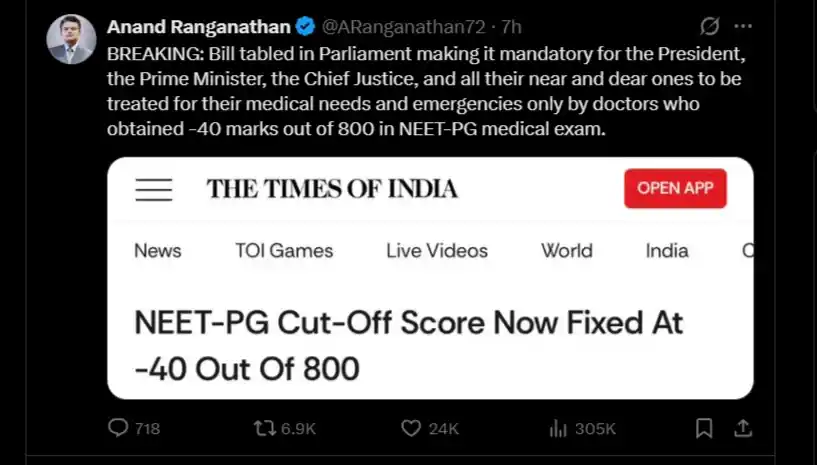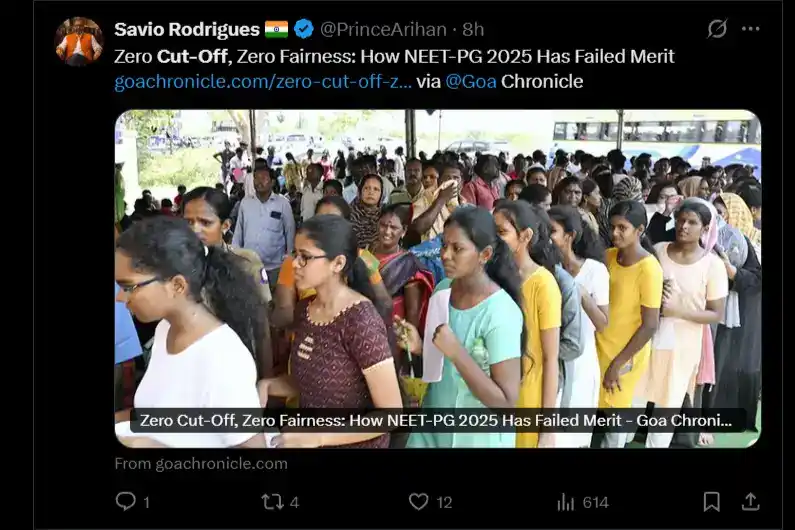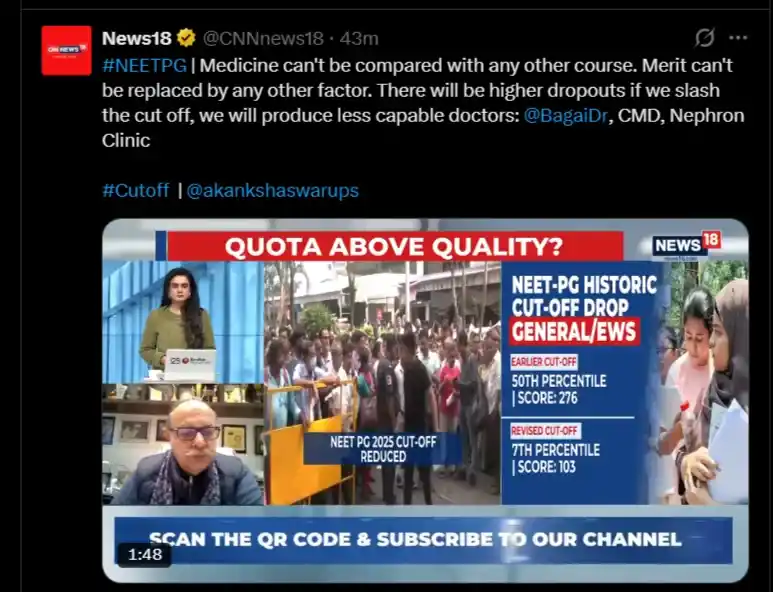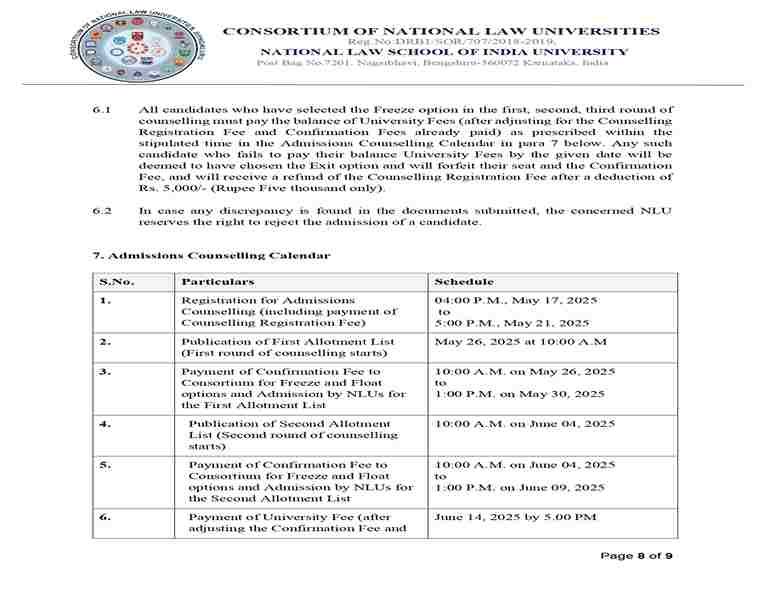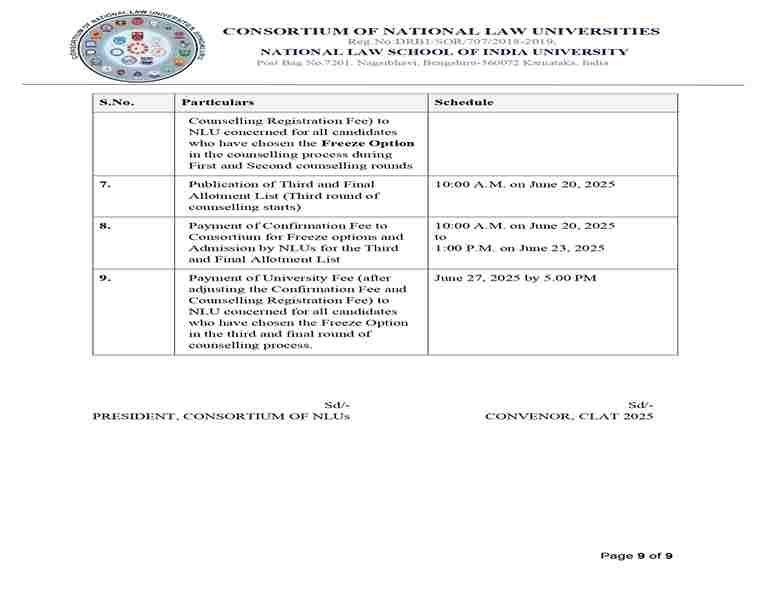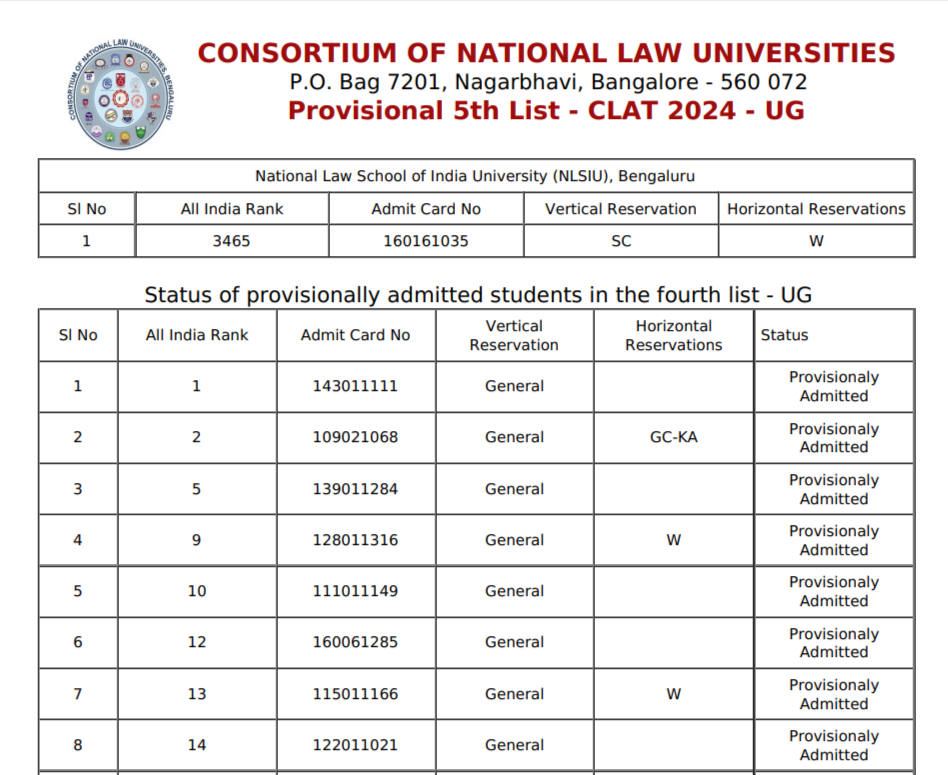The Xavier Aptitude Test (XAT) 2026 result has been officially declared by XLRI Jamshedpur on January 16, 2026, on the official XAT portal at xatonline.in. Candidates who appeared for the national-level management entrance examination — held for admission to MBA and PGDM programmes — can now download their scorecards online using their XAT ID and password.
The XAT exam was conducted as a computer-based test (CBT) across India on January 4, 2026 in a single shift. Alongside releasing the results, XLRI administered the response sheet and provisional answer key earlier in January, allowing candidates to estimate their scores before the result announcement.
The XAT scorecard contains sectional scores, overall score, percentile and qualifying status, which will be used by participating management institutes nationwide for shortlisting candidates for admission rounds such as GD/PI. The XAT score is widely accepted by 200+ MBA and PGDM colleges across India.
Latest Updates:
- XAT 2026 Result (OUT) – Download Scorecard Here
XAT 2026 Result Portal
This is what the result log-in window looks like:

How to Download XAT 2026 Result
Candidates must follow the official process to access their XAT 2026 scorecards. This is an entirely online process, and the scorecard PDF can be downloaded immediately after logging in.
- Visit the official XAT website — xatonline.in.
- Click on the “XAT 2026 Scorecard / Result” link on the homepage.
- Enter your XAT ID and Password (registered during application).
- The scorecard will appear on the screen.
- Download and save the PDF for future admission procedures.
Note: It is recommended to take multiple printouts for use in subsequent stages of the admission process and counselling.
Details Mentioned on the Scorecard
The XAT 2026 scorecard presents essential performance and identification information required for admissions and counselling. This includes:
- Candidate’s name and registration details
- XAT ID and roll number
- Sectional scores (e.g., Quantitative Ability, Verbal & Logical Ability, Decision Making, General Knowledge where applicable)
- Overall score and percentile
- Qualifying status for shortlisting
These details help institutes determine candidate eligibility for the next rounds of the selection process, including Group Discussion (GD), Personal Interview (PI) and Writing Ability Test (WAT) where applicable.
Expected Cut-off: XAT 2026 (Based on Last Year Trends)
While XLRI will release final cut-offs in the coming days.
XAT 2026 cut-offs are expected to be similar to last year’s trends. The table below gives an indicative idea based on prior patterns and common cut-off percentiles used by top participating institutes:
| Institute / Category | Expected XAT 2026 Cut-off (Percentile) |
| XLRI Jamshedpur – BM | 95+ |
| XLRI Jamshedpur – HRM | 90+ |
| SPJIMR Mumbai | 85–90 |
| IMT Ghaziabad | 80–85 |
| XIM Bhubaneswar | 80–85 |
| MICA Ahmedabad | 85–90 |
| Other Good MBA Colleges | 70–80 |
XAT Result Dates: Previous Years’ Trend
The XAT 2026 results were declared on January 16, 2026. Here we bring you past years’ result trends for reference.
- XAT 2025 result date: January 17
- XAT 2024 result date: January 20
- XAT 2023 result date: January 28
- XAT 2022 result date: January 17
- XAT 2021 result date: January 18
XAT 2026 Result: Percentile-Wise MBA Colleges & Fees
Candidates often use their XAT percentile to gauge admission chances at various MBA/PGDM colleges. While exact fee structures vary yearly, the following table provides a generalised idea of fee ranges associated with approximate XAT percentiles based on last year’s trends:
| Percentile | Representative Colleges | Approx. Fee (Annual) |
| 95+ | XLRI Jamshedpur | ₹15–23 lakh |
| 90–95 | SPJIMR Mumbai, MICA Ahmedabad | ₹17–28 lakh |
| 85–90 | IMT Ghaziabad | ₹20–24 lakh |
| 80–85 | XIM Bhubaneswar | ₹18–24 lakh |
XAT 2026 Topper List (OUT)
Over 1 lakh candidates appeared for the XAT 2026 exam, which was held on January 4, 2026. The XAT toppers list is not typically released.
So, it is no surprise that XLRI Jamshedpur, the XAT conducting institute hasn’t released any XAT toppers list 2026.
However, students securing 95 to 99 percentile can safely be called star performers. Check below names of some of the XAT 2026 toppers.
| XAT 2026 Toppers Name | XAT 2026 Toppers Score (Percentile) |
| Aishiki Sen | 97.47 |
| Vishesh Mittal | 98.42 |
| Pranay Gangele | 97.06 |
| Radhika Arora | 96.26 |
| Debodatta Lala | 97.34 |
| Nivedha Rajkumar | 99.51 |
| Tejaswi Razdan | 96.02 |
| Anshika Bhagat | 96.58 |
| Abhishek Kumar | 99.81 |
| Aditya Narwania | 99.1 |
| Aman Pandey | 98.13 |
| Saurabh Jaiswal | 99.12 |
XAT 2026 Result Statistics
XLRI Jamshedpur has not released any official XAT 2026 result statistics such as the number of candidates registered, appeared, or shortlisted for admission. The XAT scorecard issued to candidates reflects individual performance only, including sectional and overall percentiles.
In previous years, XLRI has followed a similar approach, where detailed participation or qualification data was either released at a later stage or not disclosed publicly. Shortlisting for Group Discussion (GD), Personal Interview (PI), and Writing Ability Test (WAT) is carried out independently by participating institutes, based on their respective admission criteria and cut-off requirements.
Candidates are advised to rely only on official updates published on xatonline.in for any information related to XAT result data and to avoid unverified claims regarding the number of qualifiers or percentile distributions circulating on unofficial platforms.
What Next?
With the XAT 2026 results declared, candidates should focus on the post-result stages of the management admission cycle:
- Download Scorecard and Check Percentile — Essential for shortlisting eligibility.
- Cut-off and Shortlist Announcements — Institutes will release their own cut-offs and interview lists soon.
- Interview / GD / WAT Rounds — Scheduled by individual business schools typically between February and April.
- Final Selection & Admission Offers — Based on composite scores (XAT + GD/PI + Academics).
Aspirants should monitor xatonline.in and participating institute portals regularly for personalised information and counselling schedules.
XAT 2026 Result OUT – Next, How to Shortlist Colleges
After the declaration of the XAT 2026 result, shortlisting the right MBA colleges is a critical step in the admission process. Candidates should approach this exercise strategically, keeping in mind that XAT scores are accepted by 200+ management institutes, each with its own cut-offs, selection criteria, and programme focus.
The first step is to assess your XAT percentile realistically. Compare your overall and sectional percentiles with the previous years’ cut-offs of target colleges. Many top institutes, including XLRI Jamshedpur, apply sectional cut-offs, so candidates must ensure they meet both overall and sectional eligibility requirements.
Next, candidates should evaluate programme fit and specialization. Some institutes are known for specific domains such as Human Resource Management, Business Analytics, or Marketing. Reviewing curriculum structure, pedagogy, and industry exposure can help identify colleges that align with career goals.
Another important factor is selection criteria beyond XAT score. Most B-schools use a composite score that includes XAT percentile, academic background, work experience, diversity factors, and performance in GD/PI rounds. Candidates with moderate XAT scores but strong academic or professional profiles may still be competitive at certain institutes.
Candidates should also consider fees, return on investment (ROI), location, and placement records. Comparing average placement packages against total programme cost provides a clearer picture of long-term value.
Finally, aspirants should track application deadlines and interview shortlists on official institute websites and apply only to colleges where they meet the eligibility criteria. A balanced shortlist should include aspirational, realistic, and safe options to maximise admission chances.
How to Apply to MBA/PGDM Courses After XAT 2026
After the declaration of the XAT 2026 result, eligible candidates can begin applying to MBA and PGDM programs offered by XLRI Jamshedpur and other participating management institutes that accept XAT scores. The application process is institute-specific, and candidates must apply separately to each B-school of their choice.
The first step is to check eligibility criteria on the official websites of the shortlisted institutes. Eligibility generally includes a valid XAT 2026 score, minimum graduation marks, and in some cases, meeting sectional cut-offs.
Below is a step-wise guide to applying for MBA/PGDM admissions through XAT:
Step 1: Visit the Institute’s Official Website
Go to the official admission portal of the MBA/PGDM college you wish to apply to. Look for the admissions or MBA/PGDM application section.
Step 2: Register for Admission
Create a new login using your email ID and mobile number. You will receive login credentials to access the application form.
Step 3: Fill the Application Form
Enter personal details, academic qualifications, work experience (if applicable), and upload required documents. You will need to provide your XAT 2026 score and percentile as part of the form.
Step 4: Pay the Application Fee
Pay the institute-specific application fee online using debit card, credit card, or net banking.
Step 5: Submit and Download Confirmation
Submit the form and download the application confirmation page for reference. After applications close, institutes will release shortlists for GD/PI/WAT rounds. Candidates who clear these stages will receive final admission offers based on composite scores. Aspirants are advised to regularly track official websites and registered email IDs for updates and interview schedules.



